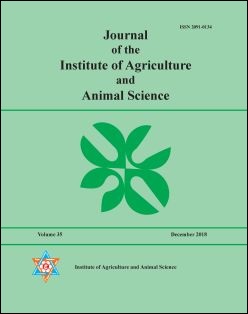Agricultural Extension Service Delivery in Provincial and Local Government of Nepal: An Integrative Literature Review
DOI:
https://doi.org/10.3126/jiaas.v36i1.48429Keywords:
constitution, extension, federalism, restructureAbstract
Three tiers government system as new structured governance transformation in Nepal has opened up an opportunity for making agricultural policies especially at the province and local level to promote bottom-up approach of agricultural extension delivery system. Restructuring of extension system has also leaded the way to multiple challenges in achieving the goals and vision of various strategies and plans. The paper discusses the emerging issues and challenges of agricultural extension service delivery in the changing institutional and policy context. Through an integrative review of literatures, the paper discusses the prospects of agricultural extension service system in federal context and highlights the gaps in current extension service delivery mechanism. The paper concluded that with the implementation of federal system based on the rule of law, federal governance, balanced power-sharing and values, it has opened up an opportunity for making agricultural policies at the province and local government level and thus promoting the participatory, demand driven agriculture planning and implantation. However, Nepalese agriculture extension service delivery has been facing difficulties in transforming itself in the changed context due to lack of the coordination between the layers of government, niche- based expertise, long term visualization and capitals. There are very few studies and research regarding the structural reorganization of extension system in Nepal. In this context the paper aims to identify the background, prospects and challenges faced by agricultural extension system of Nepal in federal context.

